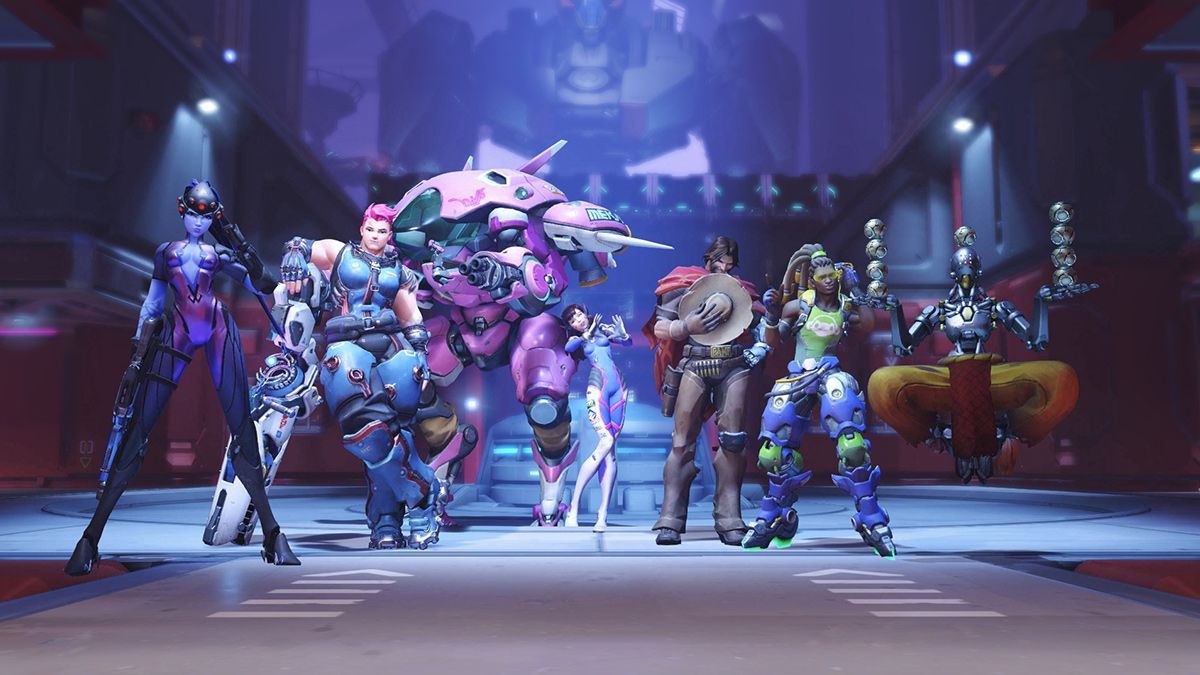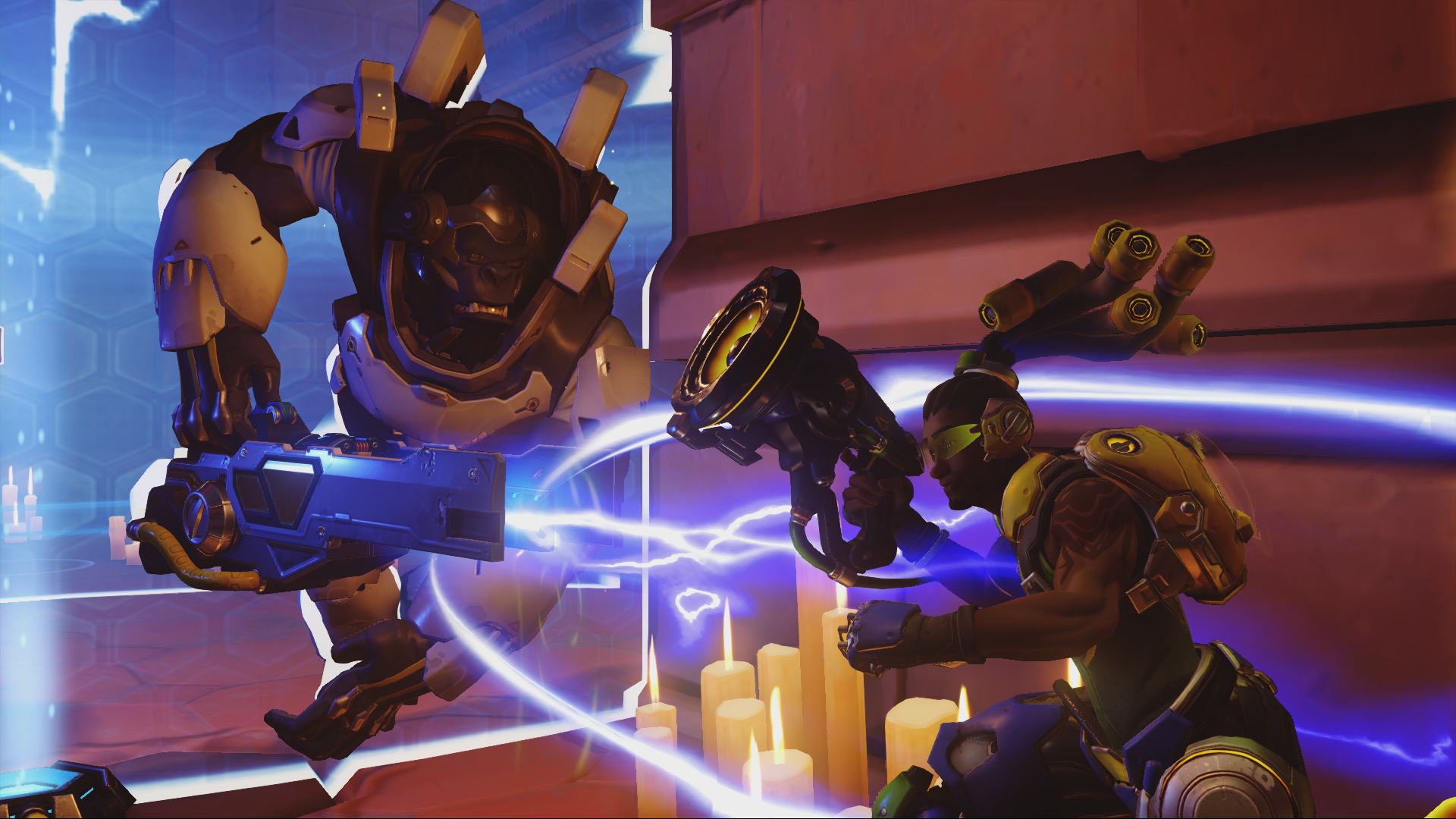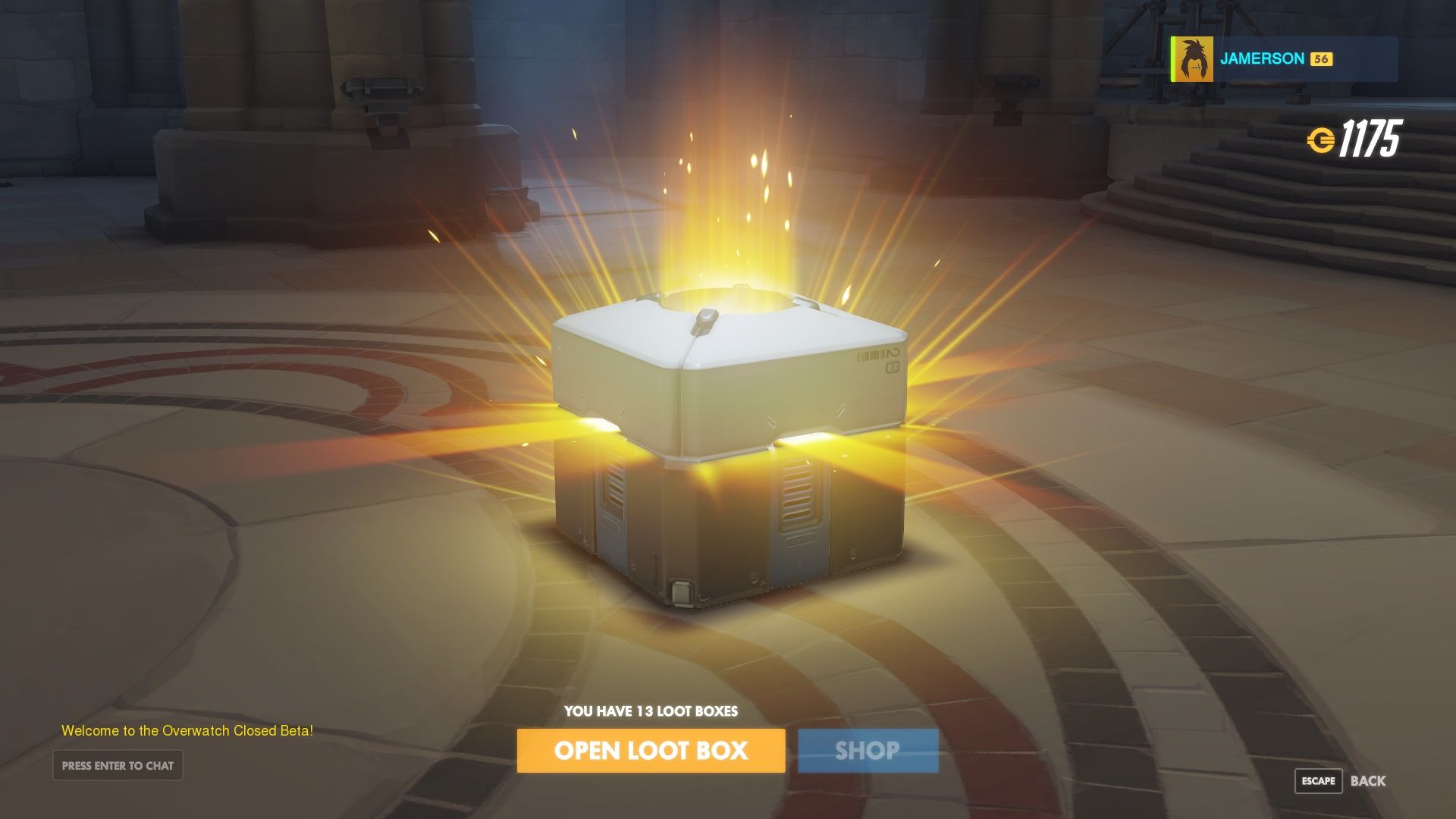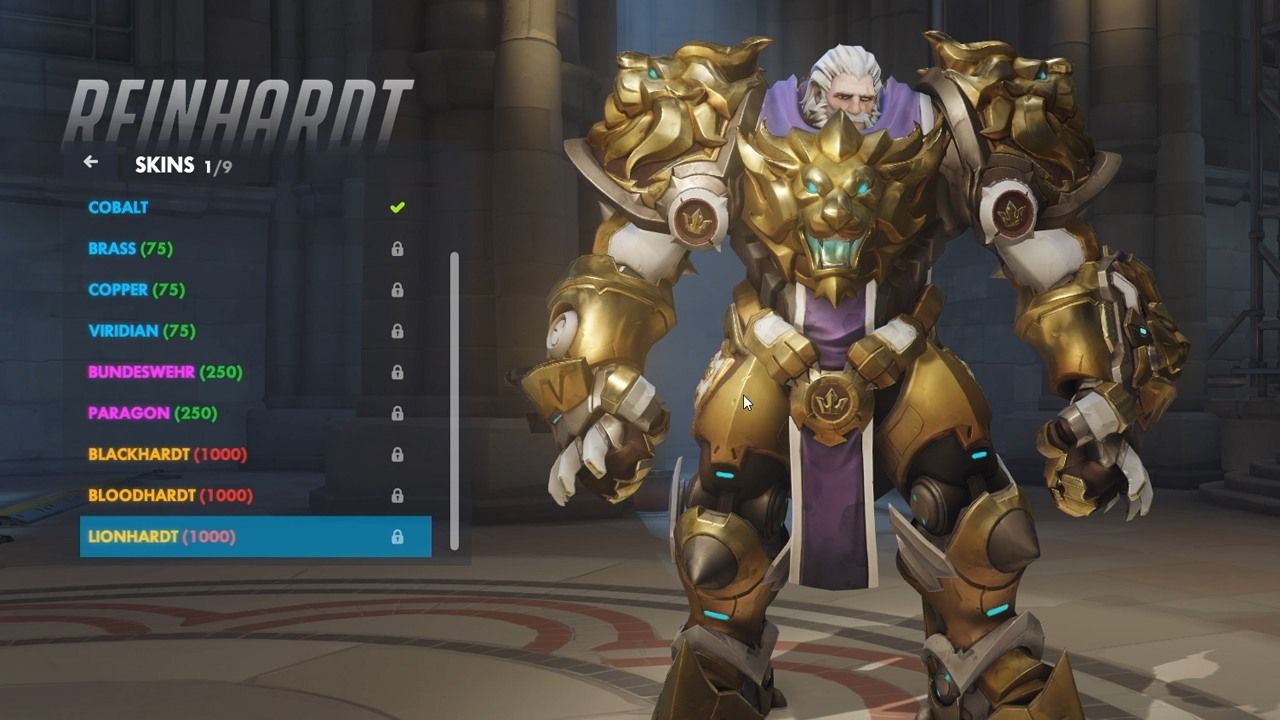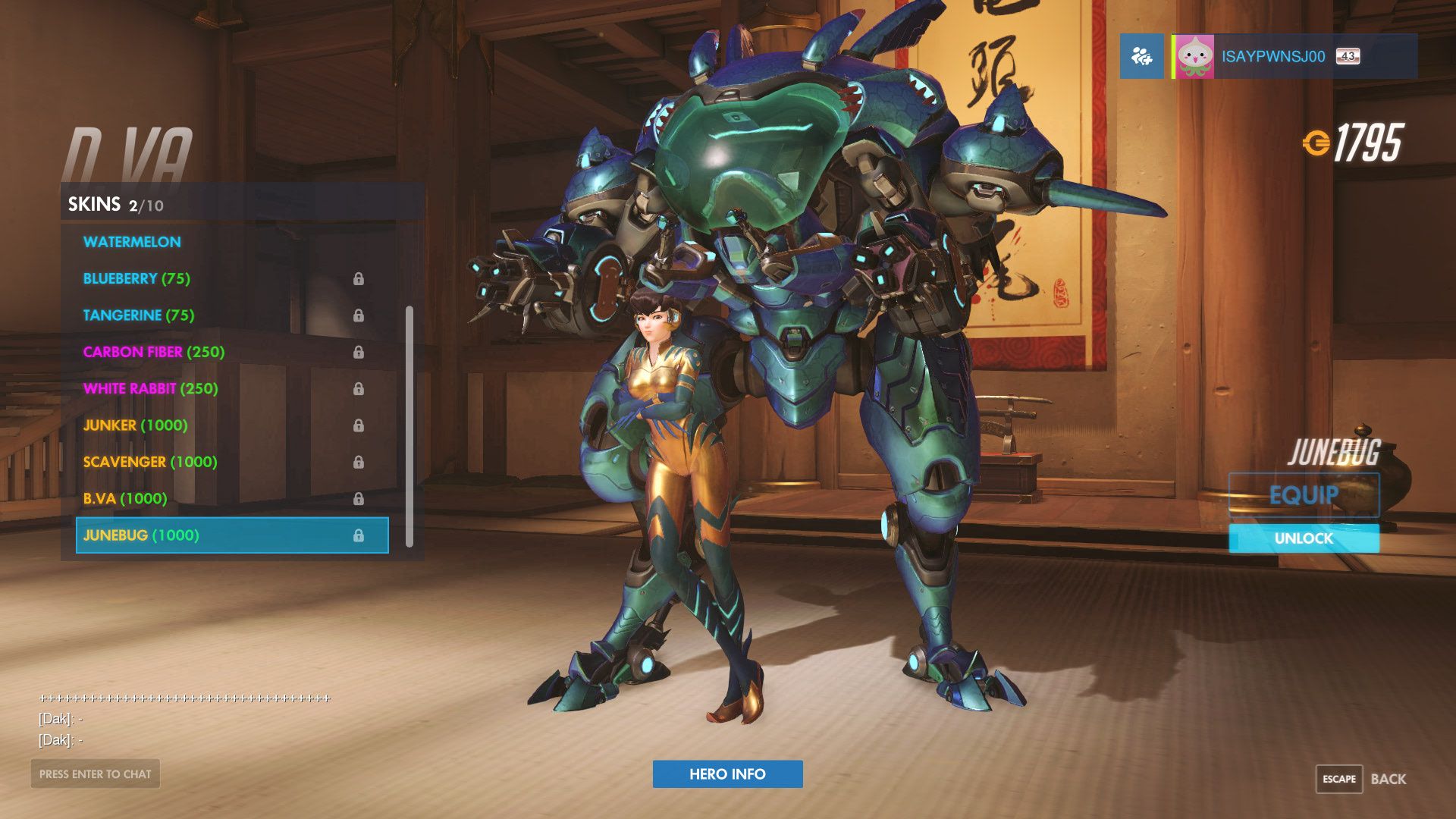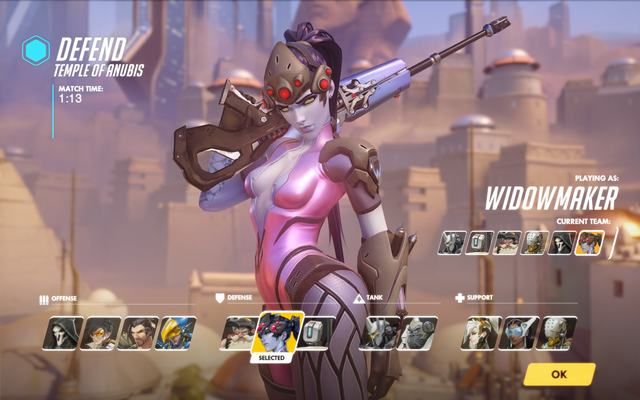With Blizzard Entertainment's long-awaited Overwatch, the studio's first new IP in nearly two decades, many fans of the studio's previous titles (such as StarCraft, Diablo, and Warcraft, to name a few) have been swept up by the game's evocative setting, fast-paced gameplay, and its band of colorful, eclectic characters that have really brought a lot of... well, character... to the studio's new first-person shooter.
For me: Overwatch has been my latest addiction, and for pretty much all those reasons it's been booted up night after night on my PC.
As a gamer that has generally stayed more in the world of single-player games, anytime I've delved into multiplayer-only gaming it's mostly been for my friends. Together, we've gone through games as wide and varied as StarCraft, Counter-Strike, and of course Team Fortress 2. Overwatch has become the latest craze between my friends and I, starting with the game's open beta early last month and still ongoing. Heck: I probably will be playing now as you're reading this (or at least wishing I was).
Overwatch has definitely gotten its hooks into me and become my go-to multiplayer game in the past few weeks: it's been my "comfort food" game between waiting for friends to hop online, or between sessions of longer, more involved games. For that, Overwatch has been my perfect fit for a quick, fast-paced game that I've continually been getting enjoyment out of for several weeks now.
For all of the game's acclaim and big player base so far, one of the more criticized aspects of the game has been its progression system, and specifically how it ties in to the use of one of those "evil" words that can often make gamers grimace: microtransactions. Whether it's through extra lives, content, or the devious "pay to win" model of giving players boosts and other benefits at the expense of real-world cash, microtransactions have gradually integrated themselves into the world of console games in the last few years to both the benefit of studios and the chagrin of gamers.
That resentment towards a mobile-like system of microtransactions is reasonable when it comes to console games. While the model makes sense for free-to-play titles, the motivation behind charging for additional content in the context of console games (which already have an upfront cost) is met more often than not with the feeling of a company trying to wring more profit out of its audience. The integration of microtransactions, DLC, Season Passes, and others ways of extending profits beyond just the $59.99 cost of a regular retail game is apparent more than ever and, like it or not, they aren't going away (at least anytime soon).
On that front, Overwatch has joined the pack when it comes to retail console games that are offering microtransactions in-game. Specifically, that microtransaction system is tied into the game's "Loot Boxes," which players can obtain and open to receive a variety of cosmetic items including voice packs, skins, sprays, and more.
In the normal in-game progression, players earn Loot Boxes by reaching a new in-game level (after earning the specified amount of experience received from regular play), which can then be opened to earn randomized loot drops. Loot Boxes guarantee that players will earn at least one item that's of rare quality or better (with the rest being an assortment of rarity either below or above), while duplicate items earned are instead turned into credits that players can then use to purchase specific items that they want (though at usually much higher asking prices).
Alternatively, Overwatch's microtransactions allow players to purchase Loot Boxes and get a much larger quantity of loot/items upfront, instead of the longterm approach by leveling up and earning Loot Boxes through experience. Currently, Overwatch offers five tiers of Loot Box bundles for players to purchase, starting from $2 all the way up through to $40 (which is equal to the game's standard edition price on PC):
- 2 Boxes – $1.99
- 5 Boxes – $4.99
- 11 Boxes – $9.99
- 24 Boxes – $19.99
- 50 Boxes – $39.99
Of course, the one caveat with purchasing Loot Boxes is that getting a particular item or unlock is not going to be guaranteed, since the Loot Boxes are still just randomized collections of loot, just in greater quantity. Combined with there being well over 1,100 unlockables in the whole game (about 50 unlockables for each of the game's 21 characters), the notion of buying Loot Boxes upfront is certainly one that may be appealing to those looking to get maximum enjoyment of the game's style and cast right away, rather than grind away for countless hours for the hope of getting a particular skin, voice pack, or that one cherished item you've been looking for.
As with other games like it, the integration of microtransactions in Overwatch has been met with a fair amount of criticism, for reasons that aren't unjustified. For many, the use of microtransactions in games like Overwatch or others before it seem to exist purely for the exploitation of players (and more importantly, their wallets) for a game that already costs $40-60 (depending on where you but it).
However you look at it, microtransactions have become somewhat of a necessary entity (some might say "evil") in the current state of games, and especially in the world of multiplayer-focused experiences. But in a way, I think Overwatch shows that there can at least be some form of harmony between console games and microtransactions in a way that doesn't feel predatory or exploitative towards players that are already investing money upfront toward the experience.
That isn't to say that Overwatch's system when it comes to microtransactions is completely perfect, but part of that is certainly by design. As noted by our reviews editor Lou Contaldi in his review of the game, progression and earning loot boxes in the game eventually can reach to the point of a slow crawl, where purchasing Loot Boxes can definitely be a far more appealing option instead of spending nearly 80 minutes of in-match time just to earn the next level, and therefore a new box to unlock. On the other end, the randomization of the boxes can make purchasing loot truly a mixed bag -- I could conceivably buy two $40 bundles of 50 Loot Boxes and get a treasure trove of items to add to my collection, or a pile of crap with little to no value for my investment.
Likewise, the loot system of Overwatch is the game's one true "carrot on the stick" to keep players going, as leveling up and earning experience is purely for the earning of Loot Boxes and acquiring cosmetic items. In this day and age of Call of Duty, Halo, and other competitive titles with more in-depth rewards and systems to keep players engaged in a title for the long haul, Overwatch's sense of progression can be seen as a bit lacking in comparison (other than a "prestige" system upon reaching Level 100 and starting over again at the beginning for promotions/rankings). As Lou noted in his review, hopefully the integration of daily challenges, missions, or other features could help make the climb for experience a bit more varied and rewarding, though (as it currently stands) Overwatch may not be able to offer the same level of motivation or reward that a Call of Duty or Halo is offering.
There's clearly much that Overwatch can improve on in its current multiplayer offerings and is far from perfect, in terms of its quality-of-life experience. But more importantly, what Overwatch does right is create a model for microtransactions in retail games that offers an optional experience for earning solely cosmetic rewards faster, instead of locking them behind monetized gates (aside from the fact that they are purely cosmetic items with no effect on the core game). In that sense, I think Overwatch has largely succeeded in offering a microtransaction system that's justified in allowing players to purchase items upfront (if they want), while instead offering future game updates, new content, characters, and more for free: a huge, huge benefit for the game's long-term viability and player base.
I've certainly had my gripes with the way that Overwatch is currently a bit stingy when it comes to doling out loot and rewards for players. Take this from someone currently at around level 22-23, where now it usually takes me at least an hour/hour and a half to earn a Loot Box, and faced with a barrage of voice packs and sprays compared to the skins and intros that I've been desperately desiring. It's frustrating to be sure to be earning random loot drops and not getting what I desire, even if it's just in earning common-level skins at all versus the very few that I've actually earned in my roughly 10-15 hours of game-time so far.
However much Overwatch has been keeping me away from skins and the items that I want to unlock, I'd much rather take the approach that Blizzard has taken when it comes to integrating microtransactions within the experience. Knowing that the Overwatch I'm playing now will either be the same experience in a few weeks, or I'll at least have access to the same content as the rest of the game's community with new content or updates that are free, at least makes me far more satisfied at my $40 purchase, with the option to spend more money to get new items if I so choose.
Compared with what I feel are the far more exploitative means of Season Passes or DLC (for content that could ultimately be disappointing or not worth my money), I know full well that Overwatch's system of loot and progression are meant to either keep me playing, or (ultimately) to spend money to get items faster. As much as I'd love some new skins for Hanzo, Mei, D.Va, or the other characters that I've come to love in my time playing, the fact that Overwatch features in-game microtransactions is one that may bother players, and not for unjustified reasons. However, I'm perfectly content with the option to pay for more items if I want to: more importantly, I'm even more content at the fact that I don't have to to enjoy the experience that Overwatch has given me, and will likely continue to give me for months on end.

